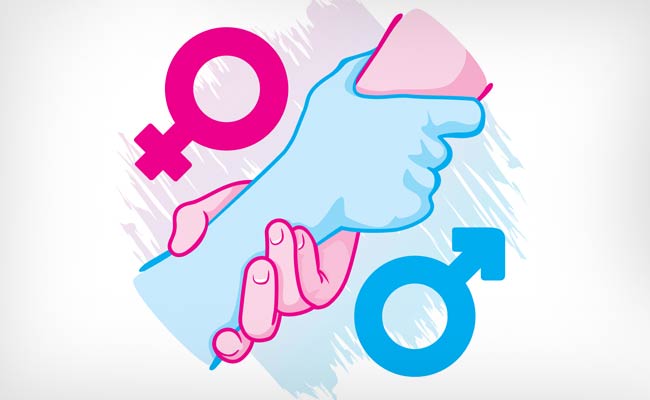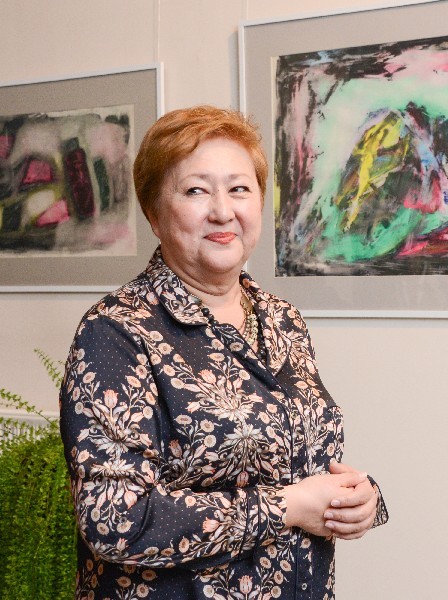ASTANA – Feminist movements are growing in the light of push for the social modernisation and reaching high human development in Kazakhstan, yet there is a room to develop. The gender experts and human rights activists Moldiyar Yergebekov and Asiya Khairullina spoke to The Astana Times about existing social problems around gender inequality and their high hopes for the future.
Developing feminist movements
The feminist movement in Kazakhstan began with the country’s independence in the early 1990s, according to Yergebekov, yet feminists from that time and those who appeared after 2010 are different.
At the outset they fought for equal rights, but now their agenda includes identity and those who have started to call themselves feminist. He believes the movement started with Bolashak International Scholarship programme students, who, upon returning to the country after years of studying abroad, were more open to various ideas and discussions.
“We did not come to an empty space,” said Khairullina, who is also one of the first feminists in Kazakhstan and the chairperson of Women’s League of Creative Initiative. “That is, before these principles were laid down, they were protected by [both] Soviet and Kazakh laws. These principles were there. But in order to comply with this new transition to the independent state, we began to talk about it already from the perspective of such great global changes. And that means that new indicators had appeared, new laws, new state programmes, new discourses had come to the public. That is, it was very interesting and bright.”
Overall, the number of feminists started to grow, and men also began to talk about gender equality and the constraints on women. Movements such as the UN Women’s #HeForShe campaign raised the profile of the problem and increased the number of men supporting women. According to the United Nation’s Gender Inequality Index, Kazakhstan is ranked 43rd out of 189 countries in 2017.
Active campaigns and groups are concentrated in big cities such as Almaty and the capital, with just a few activities to advocate for the equal rights in the regions. One such programme, the ZhasCamp organised annually by Youth Information Service of Kazakhstan (MISK), is intended to open discussion on gender equality, politics, culture and others among villagers. Yergebekov, who is a university professor, has been invited to speak several times, especially, for his studies about the image of Kazakh women in the media.
Kazakh media’s subconscious problems
Mass media has the power and influence to shape public attitudes, views and perceptions. Thus, the way women are represented sets certain boundaries and rules on how a woman should act, he believes. Little by little, various symbols, images and assumptions, such as the seemingly innocuous gendered colours of “blue for boys and pink for girls,” form a social understanding on how a person should behave and what social position he or she should have. They form such strong views that an image of a woman-mother, a cook and weaker person, becomes inseparable from her identity, Yergebekov notes.
“Governmental outlets must serve as public broadcasting. But instead of being the voice of all the rational thought, they cherish the socially established views,” said Yergebekov on the work of most Kazakh media sources. “It needs a good critique. We need to transform the Kazakh media.”
“We have this perception that media in the Kazakh language is very sexist, while media contents in Russian are not. There is a stereotype like this. In fact, it is not like this. Media in Russian is equally sexist,” he emphasised.
Yergebekov pointed to the case of a lesbian who married and shortly after killed her partner and an acquaintance in autumn 2014, said Yergebekov. One media source covering that case emphasised the fact the murderer was a “woman-lesbian.” He noted there are two points to consider – the assumption the woman is a weak creation and the demonising image of a lesbian.
Kazakh society is in need for modernisation
The gender equality experts note that although the government’s aspires reaching high human development index and supports women rights being equal, there is a need to change the consciousness and perception of the society itself.
“Regarding big indicators, everything seems very good. What disappoints me is that today we have new elements of neo-patriarchy that more and more show influence on social consciousness,” said Khairullina.
Kazakh women’s share in the country’s growth domestic product (GDP) is approximately 40 percent, and 52 percent out of that work in small and medium enterprises (SMEs). To note, 66 percent of Kazakh individual entrepreneurs are women.
While the Kazakh government gives support and sets direct requirements such as minimal numbers of women that should be employed in decision-making positions, the society holds back emphasising the role of women as beauties, home-keepers and caregivers, the expert said.
“Unfortunately, throughout the years we have been getting into a more conservative atmosphere [here in Kazakhstan]. Usually, conservatism respects the ideas of others [although one might not agree], while the conservatism in Kazakhstan is trying to oppress divergent ideas. For example, last year I know there were some people wanting to beat girls (prostitutes) with kamshy (national whip). One imam from a mosque said that it is allowable to punish wives that way. Each year, people hold discussions of how many wives a man can have, however, nobody takes action to stop this,” Yergebekov said.
Yet Khairullina believes the better future is next door. The Kazakh law and history have always supported women in their aspirations to realise their potential one way or another. It is the modern society that should be modernised, and it has every possibility and tools to do so, she says.
“It seems to me, if we redirect our efforts and focus it on pulling the society so that it changes its attitude to these issues and becomes more open, I think it is possible. [Today many] powerful levers appeared from many small conferences and forums,” she notes.
The new speed of the information exchange that advanced technologies allow spreading now is colossal. Khairullina stresses that the society needs to use it to open big discussions and tackle radical sentiments.
“We need to engage people every day and we cannot just talk to the officials here. We can talk with children, teenagers, with young people. Well, we have a way out of here, why don’t we use it?”




